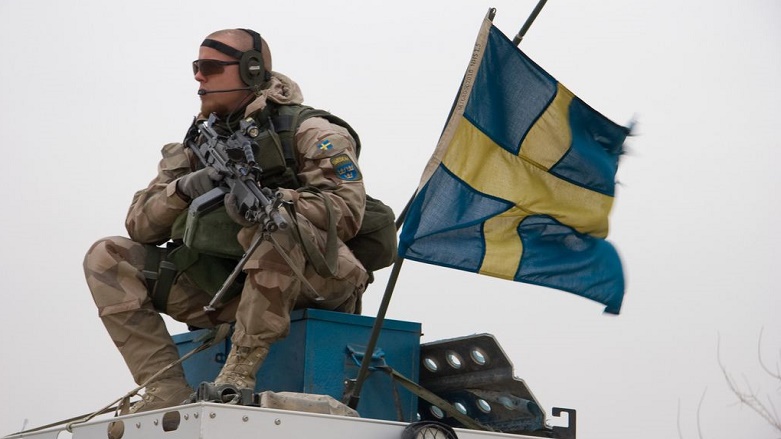Sweden doubles its troops in Kurdistan, Iraq
Sweden will step up its role in the fight against the Islamic State (IS) by increasing the number of soldiers in the Kurdistan Region, said the Swedish Defense Minister on Wednesday.

ERBIL, Kurdistan Region (Kurdistan24) – Sweden will step up its role in the fight against the Islamic State (IS) by increasing the number of soldiers in the Kurdistan Region, said the Swedish Defense Minister on Wednesday.
The Defense Minister of Sweden Peter Hultqvist told Swedish Radio’s current affairs show Ekot that Sweden had been asked to double its troops in Iraq from 35 to 70.
“In my view, it is very reasonable that we extend our mission and also contribute more. Many other countries have done that and we should too,” Sweden’s The Local news agency quoted the Minister.
The first convoy of 35 Swedish troops arrived in the Kurdistan Region in August 2015 to join the international coalition against IS.
According to Hultqvist, Swedish soldiers have trained the Kurdish Peshmerga forces on a range of measures. This includes urban warfare, healthcare, and protecting themselves against chemical weapons often used by IS insurgents.
Kurdish military and security officials have often stated that the Kurdistan Regional Government (KRG) does not need foreign soldiers to defeat IS in Iraq.
However, they have continuously called for heavy weapons and ammunition for Peshmerga who have been one of the most efficient forces in defeating IS.
There are 62 countries involved in the international coalition to degrade and defeat IS in Iraq and Syria, according to the US State Department list. The coalition has continued to provide military aid and training to Iraqi and Kurdish security forces.
IS emerged in Syria first and then took control of Mosul, the second-largest city in Iraq, in June 2014.
According to the US Special Envoy Brett McGurk, IS militants have lost the morale of fighting for the Caliphate.
He added that the group continues to shrink as they have lost 50 percent territory in Iraq and 20 percent in Syria since 2014.
Editing by Karzan Sulaivany
